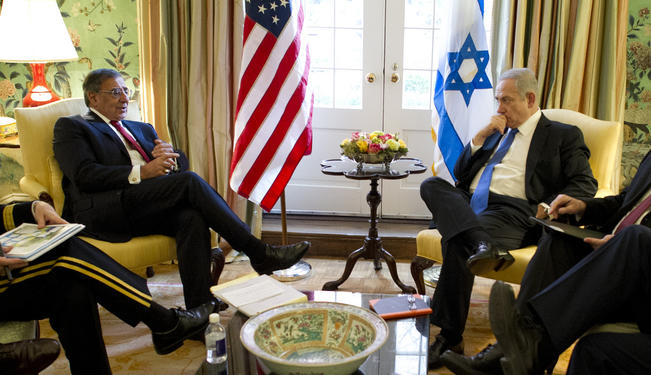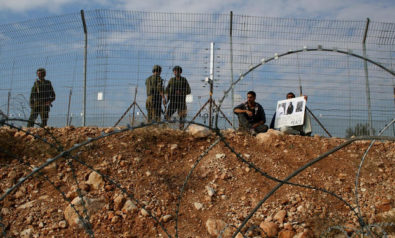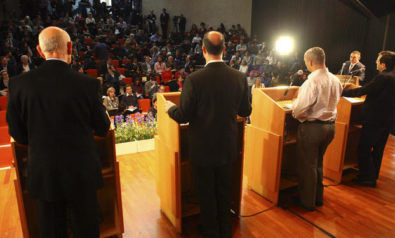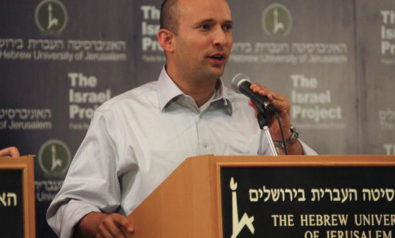The status quo of fractious relations will continue as a right-wing Israel clashes with the United States over a changing Middle East.
On January 22, 2013, two days after President Barack Obama was sworn in for his second term, Israel held parliamentary elections for the Knesset. The current Likud-Yisrael Beiteinu right-wing bloc maintained its hold with a slim majority, while Binyamin Netanyahu is likely to continue as Prime Minister in the 19th Knesset until 2016. The political merger between Prime Minister Netanyahu’s Likud and former Foreign Minister Avigdor Lieberman’s Yisrael Beiteinu on October 25, 2012 produced a right-wing political bloc with a focus on giving the country the “strength to defend Israel from military threats,” as described by Netanyahu. If this right-wing political bloc can form a controlling coalition over the next days, it will lead Israel to continue a more entrenched and hardline foreign policy which will exacerbate the friction between Washington and Jerusalem which has developed over the past four years.
Domestic Challenges
The most recent tension between the two partners occurred over Israel’s latest plans to construct new settlements. In response to the upgraded recognition conferred to the Palestinians as a non-member observer state by the UN General Assembly, the Israeli government announced plans to begin construction in Area E-1, east of Jerusalem, which would connect the current settlement of Ma’ale Adumim in the West Bank to Jerusalem in order to “protect the territorial contiguity” between the capital and the settlements. The plans were sharply criticized by Israel’s liberal politicians such as former Prime Minister Ehud Olmert, who described the plan as a “slap in the face” to President Obama who supports Israel and the peace process working towards a two-state solution. The Obama administration has long pressured the Israeli government to freeze settlement construction in order to facilitate talks with the Palestinian Authority. The Obama administration initially condemned the decision as “counterproductive” to the peace process, but has since remained virtually silent as the gun control debate has overshadowed the American political discourse.
The retirement of Defense Minister Ehud Barak from politics in the wake of last November’s Operation Pillar of Defense removes a major mediating voice in Netanyahu’s security cabinet, and thus will make it more likely for the prime minister to make controversial decisions, such as expanding West Bank settlements, which appeal to Israel’s nationalist and religious voters. Netanyahu has received considerable rebuke from these constituencies and the military, due to the terms of the Egyptian-brokered ceasefire which ended the 8-day conflict with Hamas. The settlement with Hamas allows for increased Palestinian movement at border checkpoints, which is viewed as a negotiated concession to the Islamist movement. Domestic scorn at these terms, along with a failure to use IDF ground forces to root out Hamas and other militants in Gaza, will augment the pressure on Netanyahu to take a harder line and act with significantly less patience towards any future flare up with Gaza. However, if Yesh Atid’s Yair Lapid, who is significantly more moderate, attains a ranking position in the security cabinet then this would replace or even expand the voice of moderation in Netanyahu’s ear.
Iran
Netanyahu’s impatience with regard to military threats will continue to fuel his dogged pursuit of Iran in order to prevent it from attaining a nuclear weapon. In his acceptance speech, Netanyahu reaffirmed yet again that "the first challenge was and remains [to prevent] Iran from obtaining nuclear weapons.” This continuing zealous pursuit of Iran will bring additional friction to the US-Israeli relationship as Netanyahu maintains the existential nature of the Iranian threat to the future of the State of Israel. The United States has continuously pressured Israel and the Netanyahu government to wait and allow for economic sanctions to work instead of moving ahead with a preemptive strike on Iran’s nuclear infrastructure. As Tehran continues its uranium enrichment above the reactor grade of 20%, faith in the United States’ ability to bring about a negotiated settlement will continue to erode. If the Obama administration remains ineffective in its sanction policy and is seen as unwilling to take further action, Netanyahu is likely to beat the drums of war even louder.
This bellicose rhetoric, however, is empty due to a lack of support from Israel’s security establishment. High–level voices such as former Shin Bet chief Yuval Diskin, former Mossad Chief Meir Dagan, the Army Chief of Staff, along with the Commander-in-Chief of the Air Force have all announced their opposition to Netanyahu’s plan. At best, the prime minister's plan has been described as ineffective and at worse leading to the “dramatic acceleration of the Iranian [nuclear] program,” as argued by Diskin. Thus, while Washington will continue to publicly coax Israel away from a premature strike, the chances that the US will be dragged into an Israeli launched military operation remain low.
The Iranian nuclear issue remains a point of disagreement between the allies in terms of timing and means. However, the larger security threat of Iran also provides an opportunity to solidify the security partnership as both the US and Israel fall prey to Iran’s terror activities, such as the Burgas Bus Bombing this past July and the attempted assassination of the Saudi ambassador in Washington DC in 2011. The expansion of joint operations targeting Iran’s operatives and terror proxies such as Hezbollah, serves to rebuild the frayed trust between the allies and to allay the fears espoused by the nationalist right that the US “will abandon Israel” in order to pursue its larger interests in the Middle East.
The Changing Middle East
The Arab Spring which swept through the Middle East during 2011 has brought chaos and uncertainty to Israel’s borders. With the Syrian Civil War to the north and the Islamist Muslim Brotherhood of Egypt to the southwest, the storm of the so-called “Islamic Winter” has left Israel incredibly isolated in what has always been a dangerous neighborhood for the Jewish State. The peace-treaty with Egypt, which has long served as a crux for Middle Eastern stability, is now shrouded in doubt with the advent of the Muslim Brotherhood.
President Mohammed Morsi urged Egyptians in a 2010 video “to nurse our children and grandchildren on hatred” for Jews and Zionists. This Anti-Semitic rhetoric has been augmented by Morsi’s unprecedented meeting with President Mahmoud Ahmadinejad of Iran during the sidelines of the Organization of Islamic Cooperation Summit in Cairo on February 5. This courtship comes after conflicting reports of a possible Christmas meeting between Morsi’s advisor, Essam al-Haddad, and Qassem Suleimani of the Iranian Revolutionary Guard Corps’ Quds Force, responsible for overseeing Iran’s network of militant proxies such as Hezbollah and Hamas.
This political maneuvering by Egypt creates a serious challenge for the United States’ Middle East Policy as supporting Israel brings ever greater costs towards its relations with countries like Egypt as they align with Israel’s enemies. A lack of commitment to defend and support Israel, however, will only empower the nationalist Israeli blocs who act with disregard for the United States in pursuit of their own political objectives.
Over the course of the next four years, President Obama will have to confront a more Islamist Middle East while maintaining its special relationship with Israel which finds itself surrounded and backed into a corner on numerous security issues. Obama, therefore, must reassure Israel of the US’ commitment to Israel’s security needs while promoting a viable middle ground approach on issues ranging from Iran and the Palestinians, to the wider Middle East. This will require considerable US leadership in the region which would represent a reversal from the so called “lead from behind” strategy. Netanyahu, for his part, must be willing to work with the Obama administration and reverse controversial policies such as expanding West Bank settlements. Given the current political forecast for Israel and the region, however, the possibility of this occurring remains uncertain.
The views expressed in this article are the author's own and do not necessarily reflect Fair Observer’s editorial policy.
Support Fair Observer
We rely on your support for our independence, diversity and quality.
For more than 10 years, Fair Observer has been free, fair and independent. No billionaire owns us, no advertisers control us. We are a reader-supported nonprofit. Unlike many other publications, we keep our content free for readers regardless of where they live or whether they can afford to pay. We have no paywalls and no ads.
In the post-truth era of fake news, echo chambers and filter bubbles, we publish a plurality of perspectives from around the world. Anyone can publish with us, but everyone goes through a rigorous editorial process. So, you get fact-checked, well-reasoned content instead of noise.
We publish 2,500+ voices from 90+ countries. We also conduct education and training programs
on subjects ranging from digital media and journalism to writing and critical thinking. This
doesn’t come cheap. Servers, editors, trainers and web developers cost
money.
Please consider supporting us on a regular basis as a recurring donor or a
sustaining member.
Will you support FO’s journalism?
We rely on your support for our independence, diversity and quality.












Comment